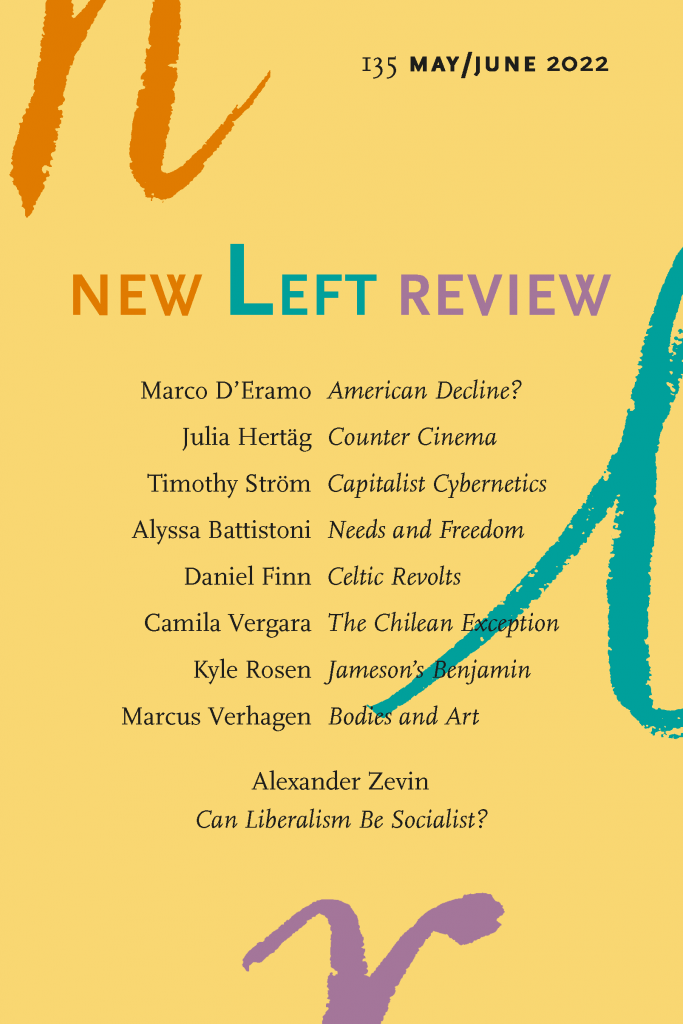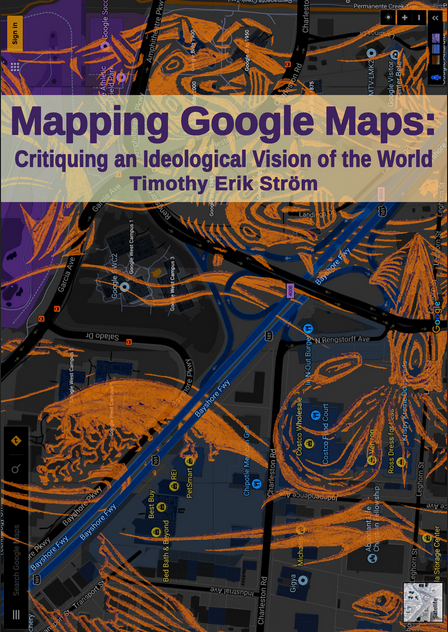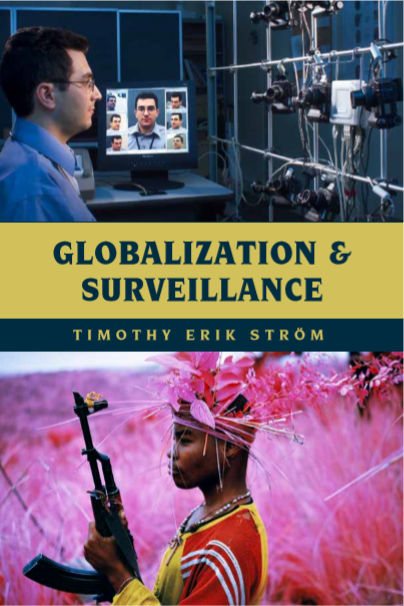The main point of this website it to collect Timothy Erik Ström’s writings in one place, which is to say, here. They are all laid out below in counter-chronological order. Within this, the two biggest pieces of work also get stand alone pages, namely my book, Globalization and Surveillance, and my PhD thesis, Mapping Google Maps.
2024: Los Almos to Neuralink
“Albert Einstein issued a dire warning: that we were living under threat not only from the atomic bomb and the spectre of extermination in nuclear war, but also from a second weapon, one he considered just at dangerous for humanity and the planet—‘the Information Bomb.”
This article was published by Arena in Issue #17, ‘Prometheus Unhinged’ (pp.60-71) and it can be read in full there.
2023: Blasted Sea
“At the cutting-edge of science and using some of the world’s most powerful calculation engines, the technique is as rationalised as it gets. Yet the blasting of an atomic bomb of sound every ten seconds is belligerent in the extreme toward the oceanic ecosystems, while the aim of expanding the frontier of fossil fuel extraction at a time of increasingly acute climate crisis is nothing short of demented.”
This short commentary piece was published by New Left Review’s Sidecar and can be read in full there.
This article has been translated into Swedish: ‘Ett skövlat hav’, Marxistarkiv.se, translated by Göran Källqvist.
2023: The Long Siege of Gaza

26 October: “Sieges are among the oldest and most brutal of military operations, in which hunger, deprivation, disease and desperation are employed to try and force a besieged people to stop resisting, surrender or die. Israel has held Gaza under a state of siege, at various levels of intensity, since 2005. The long-term, systematically planned nature of the siege needs re-emphasising as a fundamental aspect of the causation of the massacres that have taken place on either side of Israel’s militarised border.”
Read the full article via Arena.
This article was republished in Third World Resurgence, Issue No. 357, December, 2023, pp.19-21.
2023: Objects of the Anthropocene: Mapping Material-Emotional Culture from Human Beginnings to the End Times, with Paul James

Co-authored with Paul James, this article was published by the academic journal Emotions: History, Culture, Society.
Abstract: Objects are complicated things, and no less so when they are created by us. We layer created objects with additional emotional meaning. Understanding the complexity of this layering requires much more than tracing the narrative history of an object. This essay is about the objects that we make and appropriate. In particular, the essay suggests that objects need to be understood sensitively both in the context of global human history, and the ontological framing of the various moments of their creation, use, appropriation and reception. The essay folds around four contentions. Objects are central to the narration of social relations and emotional life. Objects, as carriers of meaning, move across different ontological orientations. Objects exist in multiple and ontologically different time frames, sometimes at the same time. And objects mediate our (human) relation to the larger social and natural world, even as they (and we) are part of that world.
2023: Blame Profit, Absolve Technology?

21 July: “In the tech world profit acts as a great ‘enshittifier’, but we also need to think critically about the materiality of the technologies themselves: their embedded alienation and their resource-intensive and polluting nature”.
Read the full article via Arena.
2023: Preparing for the Next War: Subordination, escalation and the Battle for Ukraine

“The US and its allies are backing Ukraine to the hilt in order to further subordinate Europe to NATO in preparation for a possible war with China.”
This short commentary article was written for the first anniversary of the Russian invasion of Ukraine. The article can be read via Arena.
2022: Data Mining on the Crawl Frontier: Metaphor in Cybernetic Capitalism

Abstract: This essay explores how the intangible operations of networked computing-machines are frequently described through tangible metaphors. After looking at their origins in military bureaucracies, this analysis steps through the material operations of Google’s famous search-engine, noting the various metaphors that are used to make sense of it, and the way they frequently draw on colonial and extractive imagery. I give an account of the company’s rise to power, emphasising how their immense profits became possible because of their control of intellectual property rights, as well as over the ‘terms and conditions’. Across this critical analysis, I show how these metaphors embody the dominant worldview of cybernetic capitalism and demonstrate how they serve as ways to cope with the extreme abstractions increasingly enmesh us.
Ström, Timothy Erik, Data Mining on the Crawl Frontier: Metaphor in Cybernetic Capitalism, Law Text Culture, 26, 2022, 123-145. <https://ro.uow.edu.au/cgi/viewcontent.cgi?article=1431&context=ltc>
2022: Capital and Cybernetics — New Left Review

“There is no shortage of epithets aimed at grasping the transformations taking place within global capitalism under the impact of the ongoing technological revolution. Algorithmic capitalism, cognitive capitalism, communicative capitalism, data capitalism, digital capitalism, frictionless capitalism, informational capitalism, platform capitalism, semiocapitalism, surveillance capitalism and virtual capitalism have all been proposed, to name but a few.”
New Left Review made this article one of their free-access pieces, so you can continue reading there… New Left Review 135 – May/June.
2022: The War in Ukraine and Imperial Decline
“This apparently old-fashioned land war seems to be exposing the extreme fragility of global capitalism, a system we have been told is the only possible future. This is a further rip to the fabric of these illusions, which have recently been cast asunder by an apparently old-fashioned plague, and some very cutting-edge climate catastrophes”.
The article can be read via Arena.
2021: Meta-Facebook: The Quest for the Infinite Office

“China’s Social Credit System is a compelling manifestation of cybernetic capitalism—of how financial mechanisms interlock with other systems of social control, by combining mass surveillance, gamified corporate loyalty programs, and debt peonage.”
This short commentary article was published about a day after Facebook made the announcement that they were reorganising themselves into the conglomerate now known as ‘Meta’… The article can be read via Arena.
2021: Cybernetic Capitalism with Chinese Characteristics

“China’s Social Credit System is a compelling manifestation of cybernetic capitalism—of how financial mechanisms interlock with other systems of social control, by combining mass surveillance, gamified corporate loyalty programs, and debt peonage.”
This article is was published first in print in Arena in issue 6, 2021, and thereafter, it was published on Arena’s website.
2020: Antennas Aflame: Cybernetics, Conspiracies and 5G

This article digs into the 5G conspiracy in the time of coronavirus, looking to take it seriously, not on a factual level – as plainly there are many false components – but rather to see how the incredible spread of such conspiracies is bound up with our strange and terrible historic moment and what this means more generally.
This article is was published first in print in Arena in issue 4, 2020, which you can see a PDF of here. Thereafter, it was published on Arena’s website.
2020: Win-win for capital, lose-lose for us: Google vs. News Corp vs. the Public

“…the struggle over the News Media Bargaining Code can be seen for what it is: a minor turf war between factions of monopoly capital.” Published on the 3rd of September, the full text is available at Arena Online.
2020: Globalization and Surveillance
Globalization and Surveillance was published by Rowman and Littlefield in February 2020. For more on this book, please see here.
2020: Speaking Power to Truth: Trump’s Contradictory Strength and the Possibility of a Coup

“Flash forward a few months into the very near future and imagine a moment when Trump, having to face up to an election, thinks it might just be better not to have one.” Published on the 7th of July, this editorial can be found in full at Arena Online.
2020: Abstracting Money: Cryptocurrencies, Cybernetics and Contradictions

Published by the Australian Humanities Review, this article goes into the crypt of cryptocurrencies, the eerie and hidden realm of networked computing-machines that enable this financial mutation. The article looks at how the global history of money can be understood as an increasingly abstracted social and material practice.
2020: Undead Undone? Coronavirus and Capitalism

Published on the 7th of April, this article is the founding editorial of the new publication, Arena Online, a weekly publication of radical and critical commentary. This link goes to a version of the article on this website, and this goes to the original one at Arena.
2020: Journey to the centre of the world: Google Maps and the abstraction of cybernetic capitalism

This article is published in the academic journal, cultural geographies, and here is its’ abstract:
Across human history, many cultures have produced different ‘centres of the world’, with cartography often being bound up in the construction and representations of this axis mundi. A contemporary manifestation of these ancient phenomena can be seen in Google Maps, the most popular world-map ever made. Google use surveillance to present various types of customized centres-of-the-world, with their global representation being automatically tailored for specific subjects. This study uses engaged theory to analytically separate the levels of abstraction inherent in these processes, connecting empiric observations with large-scale historic transformations, with a focus on subjective and material changes in relation to the capitalist world-system. It is argued that the automated, atomizing processes bound up in Google Maps serve to projects intensifying abstractions into everyday social practice, thus reconstituting how space and time are experienced, as well as being intimately bound up with intensifying processes of capital accumulation and social control.
Assuming that one is not excited about paying SAGE Publishing an absurd amount of money (that they don’t share with their authors), then here is a downloadable version of the article without the paywall.
2020: The Limits of Control

This article was published in the first edition of the new series of Arena., and it is an edited extract from my book, Globalization and Surveillance. Through analysing the parallels between China’s State Council and Google, I look at how surveillance is used by the powerful in place of solidarity, noting both the strength and and simultaneous limits of this controlling vision.
It can be downloaded from here.
Timothy Erik Ström, ‘The Limits of Control’, Arena, No.1, Autumn, 2020, pp.38-42.
2019: Data Does Democracy

This article, published in Arena Magazine, looks at the 2016 federal election in the United States, and the mass manipulation of voters. The infamous case of Cambridge Analytica, it turns out, is just the tip of the democracy-sinking iceberg. Indeed, managing democracy to serve elite interests has become a booming industry.
If you have an institutional subscription, please support Arena and download this article from Informit. Otherwise, here is a downloadable version without the paywall.
2019: Into the Glorious Future: The Utopia of Cyber-Capitalism according to Google’s Ideologues

This book is written in honour of Manfred Steger, a brilliant scholar, friend and one the primary supervisors of my PhD. The book, Revisiting the Global Imaginary: Theories, ideologies, Subjectivities, was published by Palgrave Macmillin, was edited by Chris Hudson and Erin Wilson.
My contributing chapter is called ‘Into the Glorious Future: The Utopia of Cybernetic Capitalism According to Google’s Ideologues’ and it can be downloaded from here.
2019: Marketing Fascism

This brief article for Arena Magazine was written in the immediate aftermath of the horrific massacre in Christchurch and it traces some of the grim cybernetic marketing strategies employed by the mass murderer.
If you have an institutional subscription, please support Arena and download this article from Informit. Otherwise, here is a downloadable version without the paywall.
2018: 20 Years of Google

In 2018, the tech-titan commonly known as Google turned 20. In those two decades, it went from a dorm room project to a global institution with tremendous power over the everyday life of billions of people unevenly scattered around the world. In this anniversary year, I published three articles in Arena Magazine that critically reflect on these developments and what they mean for the world.
2018: Review: Yasha Levine’s Surveillance Valley

This is a review written for Arena Magazine about Yasha Levine’s book, Surveillance Valley. The review can be downloaded from here.
2018: The Road Map to Brave New World

This academic article was written for the Swedish journal Culture Unbound, and can be downloaded open access on their website. The article’s abstract reads:
“This paper explores the shifting practices in and between cartography and capitalism. It compares two road maps of the same territory created one-hundred years apart; a Gulf Oil map from 1915 and a Google Map from 2015. These representations of space serve as entry points into examining some of the larger transformations that have occurred within capitalism over the century. I am interested in how the classic world order of Fordism has been reconstituted by cybernetic capitalism. I argue that the world order has been intensified and reorganised on a more abstract level, with profound subjective and material consequences.”
Citation: Ström, Timothy Erik: “The Road Map to Brave New World: Cartography and Capitalism from Gulf Oil to Google”, Culture Unbound, Volume 9, issue 3, 2017: 307–334.
2017: PhD Thesis: Mapping Google Maps: Critiquing an Ideological Vision of the World

In 2017 I submitted this PhD thesis which, as its name suggests, is a critical investigation of the much used and seldom studied apparatus known as Google Maps.
For more on this, please see it’s dedicated page.
2017: Leviathan in Electric Sheep’s Clothing

This article is about China’s Social Credit System and it was published by Arena Magazine. If you have an institutional subscription, please support Arena and use this download link to access the article via Informit. Otherwise, it can be downloaded here without a pay wall.
Citation: Ström, Timothy Erik. Leviathan in Electric Sheep’s Clothing. Arena Magazine (Fitzroy, Vic), No. 151, Dec 2017: 11-14.
2017: Abstraction and Production in Google Maps

This is an academic article that came out of my PhD thesis and was published in Arena Journal. If you have an institutional subscription, please support Arena and download it via Informit. Otherwise, here is a download link without a pay wall.
Citation: Ström, Timothy Erik, 2017, ‘Abstraction and Production in Google Maps: The Reorganisation of Subjectivity, Materiality and Labour’, Arena Journal, 47/48, pp.143-71.




